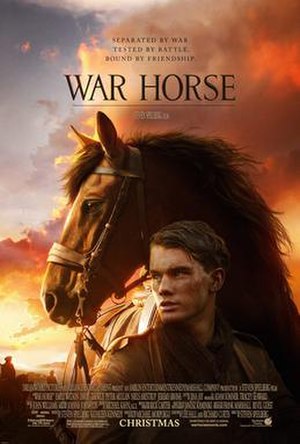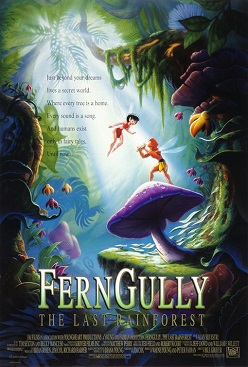 |
| Image via Wikipedia |
War Horse
The Artist
Moneyball
The Descendants
The Tree of Life
Midnight in Paris
The Help
Hugo
Extremely Loud & Incredibly Close
Best Actress
Glenn Close, Albert Nobbs
Rooney Mara, The Girl With the Dragon Tattoo
Viola Davis, The Help
Meryl Streep, The Iron Lady
Michelle Williams, My Week With Marilyn
Best Actor
Demian Bichir, A Better Life
George Clooney, The Descendants
Jean Dujardin, The Artist
Gary Oldman, Tinker Tailor Soldier Spy
Brad Pitt, Moneyball
Supporting Actress
Berenice Bejo, The Artist
Jessica Chastain, The Help
Melissa McCarthy, Bridesmaids
Janet McTeer, Albert Nobbs
Octavia Spencer, The Help
Supporting Actor
Kenneth Branagh, My Week With Marilyn
Jonah Hill, Moneyball
Nick Nolte, Warrior
Christopher Plummer, Beginners
Max von Sydow, Extremely Loud & Incredibly Close
Best Director
Michel Hazanivicius, The Artist
Alexander Payne, The Descendants
Martin Scorsese, Hugo
Woody Allen, Midnight in Paris
Terrence Malick, The Tree of Life
Best Original Screenplay
Michel Hazanivicius, The Artist
Kristen Wiig and Annie Mumolo, Bridesmaids
Woody Allen, Midnight in Paris
J.C. Chandor, Margin Call
Asghar Farhadi, A Separation
Best Adapted Screenplay
Alexander Payne, Nat Faxon and Jim Rash, The Descendants
John Logan, Hugo
George Clooney, Beau Willimon and Grant Heslov, The Ides of March
Steven Zaillian, Aaron Sorkin and Stan Chervin, Moneyball
Bridget O'Connor and Peter Straughan, Tinker Tailor Soldier Spy
Best Foreign Feature
Bullhead
Footnote
In Darkness
Monsieur Lazhar
A Separation
Best Animated Feature
A Cat in Paris
Chico & Rita
Kung Fu Panda 2
Puss in Boots
Rango
Art Direction
The Artist
Harry Potter and the Deathly Hallows Part 2
Hugo
Midnight in Paris
War Horse
Cinematography
The Artist
The Girl With the Dragon Tattoo
Hugo
The Tree of Life
War Horse
Costume Design
Anonymous
The Artist
Hugo
Jane Eyre
W.E.
Documentary Feature
Hell and Back Again
If a Tree Falls: A Story of the Earth Liberation Front
Paradise Lost 3: Purgatory
Pina
Undefeated
Documentary Short Subject
The Barber of Birmingham: Foot Soldier of the Civil Rights Movement
God Is the Bigger Elvis
Incident in New Baghdad
Saving Face
The Tsunami and the Cherry Blossom
Film Editing
Anne-Sophie Bion and Michel Hazanavicius, The Artist
Kevin Tent, The Descendants
Kirk Baxter and Angus Wall, The Girl With the Dragon Tattoo
Thelma Schoonmaker, Hugo
Christopher Tellefsen, Moneyball
Makeup
Martial Corneville, Lynn Johnston and Matthew W. Mungle, Albert Nobbs
Nick Dudman, Amanda Knight and Lisa Tomblin, Harry Potter and the Deathly Hallows Part 2
Mark Coulier and J. Roy Helland, The Iron Lady
Music (Original Score)
John Williams, The Adventures of Tintin
Ludovic Bource, The Artist
Howard Shore, Hugo
Alberto Iglesias, Tinker Tailor Soldier Spy
John Williams, War Horse
Music (Original Song)
"Man or Muppet" from The Muppets, Bret McKenzie
"Real in Rio" from Rio, Sergio Mendes, Carlinhos Brown and Siedah Garrett
Sound Editing
Drive
The Girl With the Dragon Tattoo
Hugo
Transformers: Dark of the Moon
War Horse
Sound Mixing
The Girl With the Dragon Tattoo
Hugo
Moneyball
Transformers: Dark of the Moon
War Horse
Visual Effects
Harry Potter and the Deathly Hallows Part 2
Hugo
Real Steel
Rise of the Planet of the Apes
Transformers: Dark of the Moon
Short Film (Animated)
Dimanche/Sunday
The Fantastic Flying Books of Mr. Morris Lessmore
La Luna
A Morning Stroll
Wild Life
Short Film (Live Action)
Pentecost
Raju
The Shore
Time Freak
Tuba Atlantic










![Reblog this post [with Zemanta]](http://img.zemanta.com/reblog_e.png?x-id=8c984d29-b15e-476c-a537-14aa7efaeeed)

![Reblog this post [with Zemanta]](http://img.zemanta.com/reblog_e.png?x-id=8ab77866-5fff-43c4-a68f-c61608e67a01)

![Reblog this post [with Zemanta]](http://img.zemanta.com/reblog_e.png?x-id=ddfa59d9-a2cc-46b7-8c3d-e15ec88db49b)











![Reblog this post [with Zemanta]](http://img.zemanta.com/reblog_e.png?x-id=fe1908f2-686b-4585-8d9a-aa19a0f2ec86)

![Reblog this post [with Zemanta]](http://img.zemanta.com/reblog_e.png?x-id=91a0cbba-f6a0-4118-9304-b6a5251398cd)
![Reblog this post [with Zemanta]](http://img.zemanta.com/reblog_c.png?x-id=7b923d07-0cff-44f7-9aae-392c10a560e5)

![Reblog this post [with Zemanta]](http://img.zemanta.com/reblog_c.png?x-id=f1045be5-9970-4172-9b9b-1e8400526a4f)